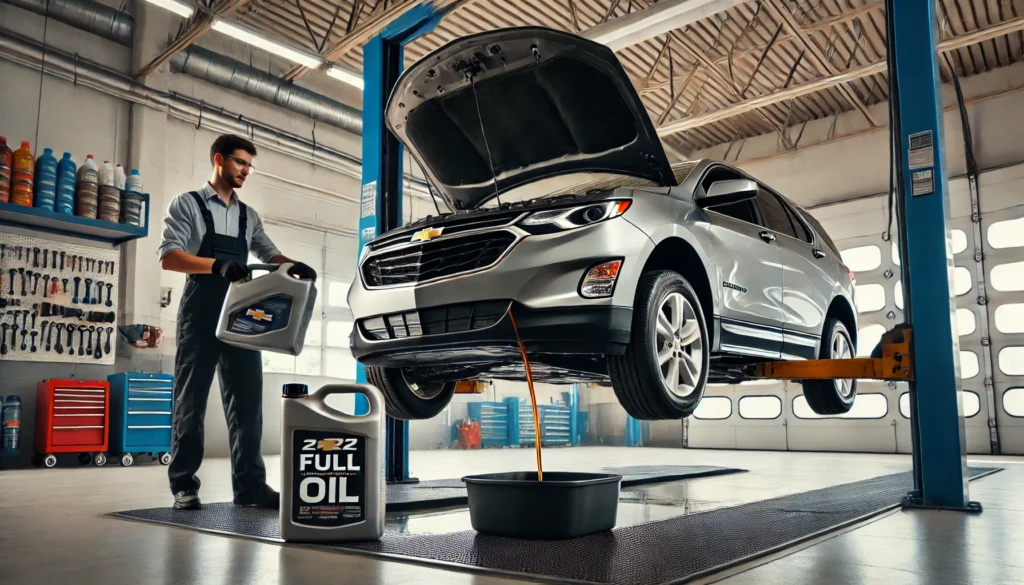Does A Chevy Equinox Need Synthetic Oil

The question of whether a Chevrolet Equinox requires synthetic oil is a common one among owners and prospective buyers. Conflicting information and varying opinions can make it difficult to determine the best course of action for maintaining this popular SUV.
The answer, in short, is often yes, but understanding the nuances is crucial. Using the correct oil type is essential for optimal engine performance, longevity, and warranty compliance.
Understanding Chevrolet's Recommendation
General Motors (GM), the parent company of Chevrolet, generally recommends the use of dexos1™ Gen3-approved synthetic blend or full synthetic oil for most modern Equinox models. This recommendation isn't arbitrary; it's based on extensive testing and engineering considerations.
The dexos specification is GM's proprietary standard for oil quality. Oils meeting this standard are formulated to provide enhanced engine protection, improved fuel economy, and reduced engine wear.
Older Equinox models might have slightly different requirements, so it's imperative to consult the owner's manual for the specific model year.
Why Synthetic Oil Matters
Synthetic oil offers several advantages over conventional oil. These advantages directly impact the performance and lifespan of an Equinox engine.
Synthetic oils are engineered to provide better resistance to breakdown at high temperatures. This is critical in turbocharged engines, which often run hotter than naturally aspirated engines, especially common in newer Equinox models.
Improved flow at low temperatures is another key benefit. This ensures quicker lubrication during cold starts, reducing wear and tear on engine components.
Potential Consequences of Using Incorrect Oil
Using conventional oil when synthetic is recommended can lead to several problems. These include reduced fuel economy and increased engine wear.
In extreme cases, it could even void the vehicle's warranty if the owner fails to follow GM's oil specifications.
Sludge buildup is also a concern. Conventional oil is more prone to forming sludge over time, which can restrict oil flow and damage engine components.
Consulting the Owner's Manual and Professionals
The owner's manual is the definitive source of information regarding the specific oil requirements for your Equinox. It specifies the recommended oil type, viscosity, and dexos specification.
If you're still unsure, consult a qualified mechanic or service technician. They can provide expert advice based on your vehicle's specific needs and driving conditions.
Dealers are also a reliable source of information. They are trained on GM's recommended maintenance procedures.
"Always refer to your owner's manual for the most accurate information regarding your vehicle's maintenance requirements," said a representative from a local Chevrolet dealership.
Conclusion
While some older Equinox models might have been able to operate on conventional oil, the general trend is towards synthetic or synthetic blend oil for optimal performance and longevity. Prioritize the recommendations outlined in your vehicle's owner's manual.
Using the correct oil is a relatively small investment that can provide significant long-term benefits. It ensures your Equinox runs smoothly and reliably for years to come.
Ignoring the recommended oil type could lead to costly repairs down the road, so it's best to err on the side of caution and use the specified oil.








![Does A Chevy Equinox Need Synthetic Oil Chevy Equinox Oil Type [Recommended Kind & Capacity]](https://chevyguide.com/wp-content/uploads/2022/05/Oil-2-687x1024.jpg)
![Does A Chevy Equinox Need Synthetic Oil Chevy Equinox Oil Type [Recommended Kind & Capacity]](https://chevyguide.com/wp-content/uploads/2022/05/Oil-4-687x1024.jpg)
![Does A Chevy Equinox Need Synthetic Oil Chevy Equinox Oil Type [Recommended Kind & Capacity]](https://chevyguide.com/wp-content/uploads/2022/05/Oil-1-656x1024.jpg)







